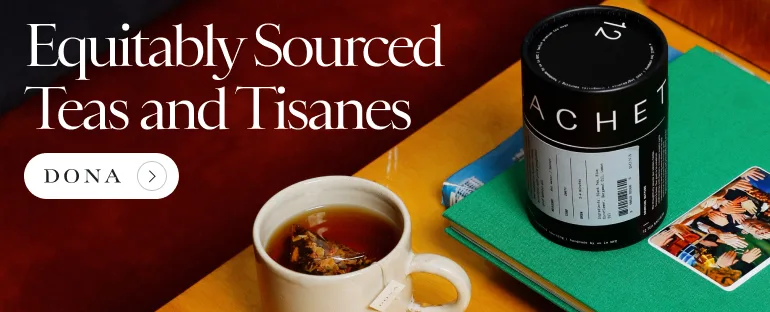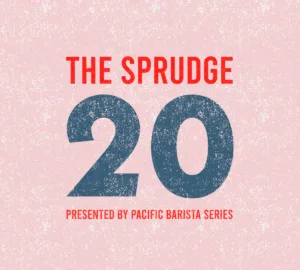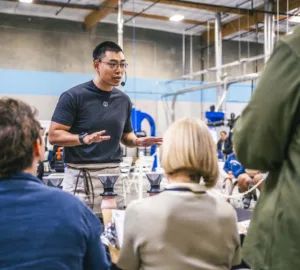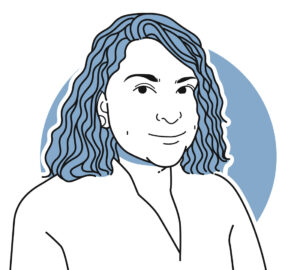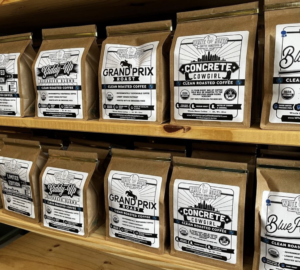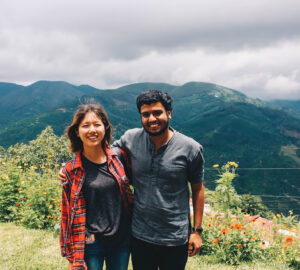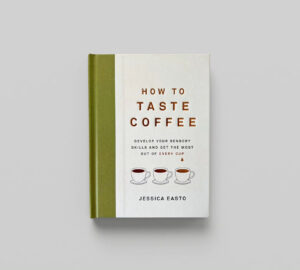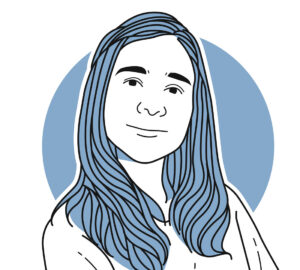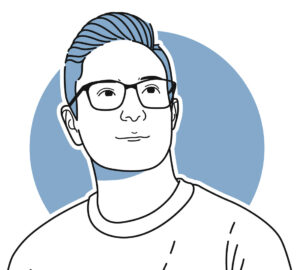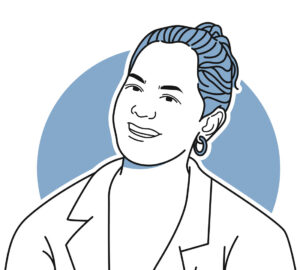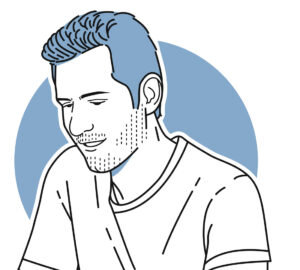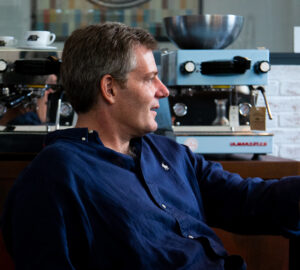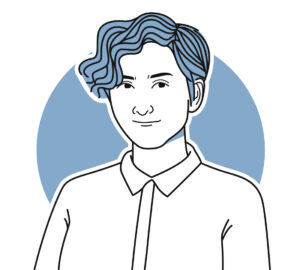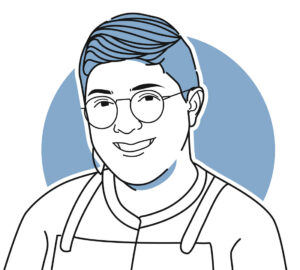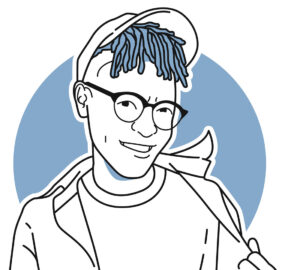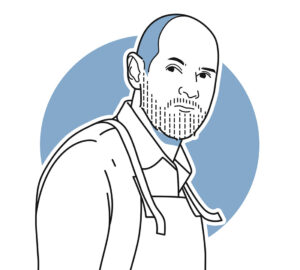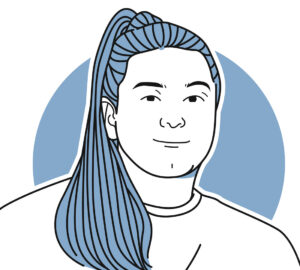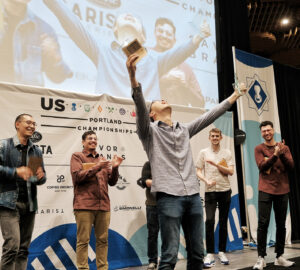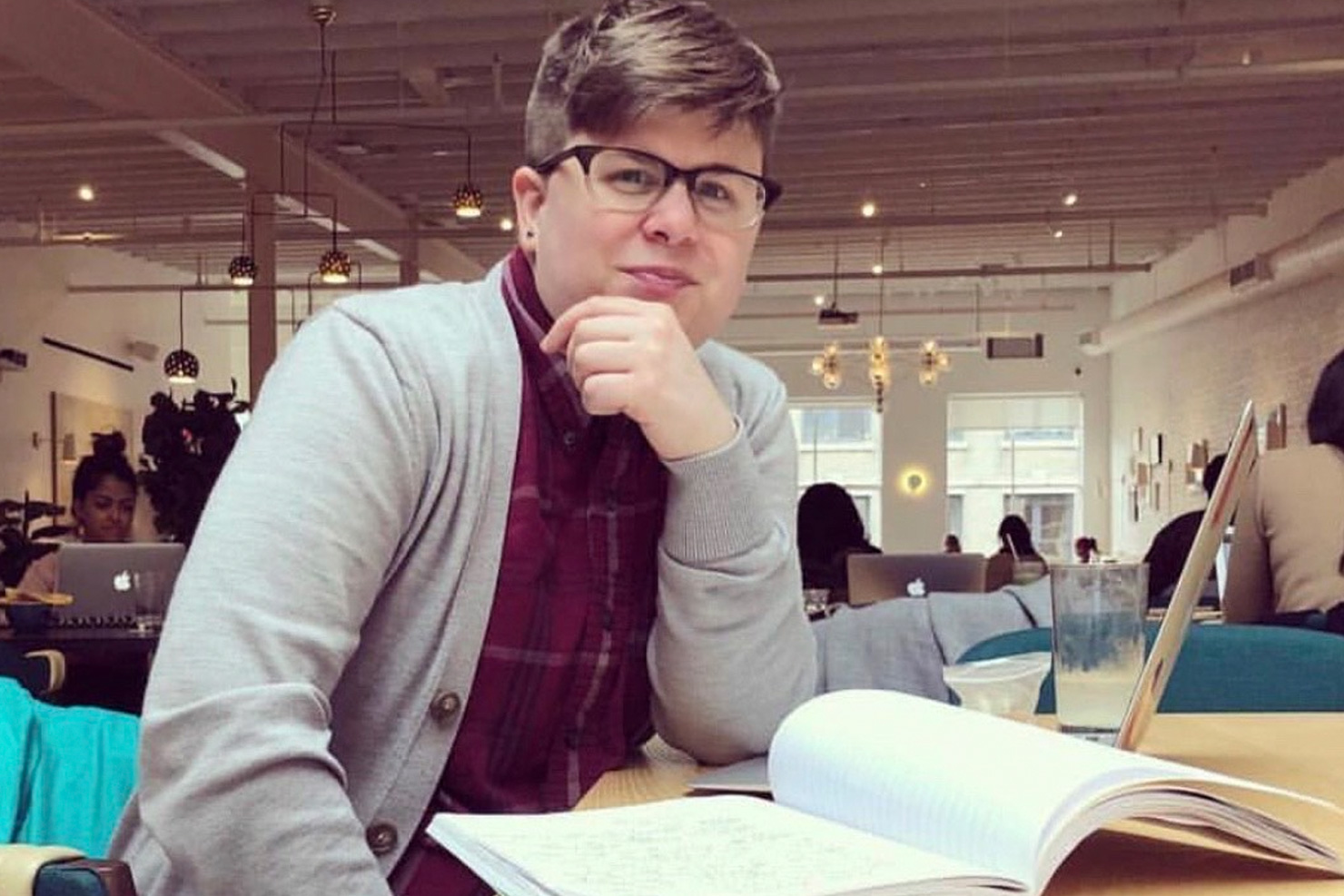
Welcome to The Sprudge Twenty Interviews presented by Pacific Barista Series. For a complete list of 2020 Sprudge Twenty honorees please visit sprudge.com/twenty.
“Dandy Anderson exudes quiet, unassuming leadership and that is exactly what makes them such a needed voice in our industry. Dandy is empathetic, understanding, patient, firm, and also pragmatic. They are generous with their time, energy, spirit, kindness, and heart. Their ideologies on the workplace, team dynamics, and what it means to be a leader makes me hope there’s a day I can call them a colleague. For now, I’m so lucky to call them a peer and also a friend.”
Nominated by Kendra Sledzinski
What issue in coffee do you care about most?
There are so many! Personally, I know that I am most effective when I am mindful of scope. I spend a majority of my time working with the public and baristas in an ever-changing industry that does have a history steeped in exploitation. How can I use that foundational knowledge to reframe business as usual and alter how the public may view or treat us or perceive pricing with a goal of uplifting baristas who are the front-facing lifeblood and future of our industry, but who I have at times seen treated with disregard by the industry as a whole. We need to create pathways for baristas to learn and grow and thrive which they can only do if they are financially secure.
What cause or element in coffee drives you?
I think a lot of about who has access and how unconscious bias has shaped and shapes our industry. Who are the faces of companies and why? Who has the resources, both time and money, to attend events and afford professional development? How do our backgrounds impact how ready-made we are for professional success? An example I think about often is how someone receives feedback. We see those who take feedback well as easier to work with, more white-collar in essence, but how did they come to learn how to receive feedback? As an industry, we need to put more energy into training everyone to be successful and not simply those that remind us of ourselves or what we have come to view as professionalism. My hope is to help shape this perspective in the workplace and greater industry and to do the best I can to create pathways for all who would like to walk them.
What issue in coffee do you think is critically overlooked?
Now more than ever, how do we protect baristas? How do we make sure our spaces are both welcoming to guests and to our own staff? How are we considering the emotional wellbeing of our teams moving forward as public-facing places that meant to provide comfort and normalcy to all. This is especially true for our Black, Brown, and Queer staff and guests who were already especially vulnerable and made even more so by this pandemic. How do we allow for grieving in the workplace? I don’t necessarily have the answers, but I hope it is something we as an industry will make space to explore. We are not and cannot be the same as we were just some months ago.
What is the quality you like best about coffee?
If you are willing to practice with a beginner’s mind, you will never stop learning. Whether it be how to brew, to lead, to analyze financials to engage with guests and colleagues, the history, culture, and socio-political aspects of growing regions, and so much more throughout the value stream.
Did you experience a life-changing moment of coffee revelation early in your career?
I have always viewed myself as an outsider. I couldn’t imagine myself ever attending a coffee event, nevermind being an active participant in the industry at large. My view of the industry was that it was incredibly misogynistic and I was lucky to have carved out my little nook at the local queer cafe where I felt safe and valued. I personally thought competitions were pretty silly and couldn’t matter because they had not been built for people like me. Meeting Katie Carguilo and James McCarthy as they visited the cafes I was working at (Diesel Cafe and Bloc) while I was on shift and they attended Expo in Boston in 2013 and having them be actively kind and curious in our interaction made me think that perhaps there was more to this industry worth actively exploring, perhaps it could be for people like me, too.
What is your idea of coffee happiness?
Equity within our community including financial stability throughout the value stream. When industry participants come to terms with the notion that coffee is inherently political and that means our participation is also political.
If you could have any job in the coffee industry, what would it be and why?
In my ideal version of my world, I am able to someday own and operate a shop. It is unlikely that I will have the resources to do as I wish, but I would also be happy as the head of a retail operation. Collaboration with others is something that I have always found great joy in.
Who are your coffee heroes?
My coffee heroes are disruptors. Michelle Johnson, D’onna Stubblefield, Ezra Baker, Tymika Lawrence, Candice Madison, Colleen Anunu, Kendra Sledzinski, Kat Adams, James Mccarthy, Oodie Taliaferro, Chris McAuley, Jenn Chen, and many more. They all deserve rest, joy, and endless thanks.
If you could drink coffee with anyone, living or dead, who would it be and why?
My Diesel cafe community fam, old and new, they lift me up constantly and help remind me of the good in the world.
If you didn’t work in coffee what do you think you’d be doing instead?
Social Work or teaching.
Do you have any coffee mentors?
I’ve learned so much from those I’ve worked for and with previously. I would not be the person I am today without having worked at Diesel Cafe in Somerville, MA Tucker Lewis, Jen Park, and Jess Brasil were all instrumental in my professional and personal growth at a pivotal time in my life. Jake Robinson and Chris Dadey, who owns Render Cafe in Boston, MA never failed to believe in me, something that can be very rare in this industry.
What do you wish someone would’ve told you when you were first starting out in coffee?
Do not wait for permission to apply; you are more than qualified.
Name three coffee apparatuses you couldn’t do without.
My everyday coffee brewing go-to’s are my Acaia Pearl, Origami dripper, and Baratza grinder.
Best song to brew coffee to at the moment.
Holidae In, Chingy is very important to me
Where do you see yourself in 2040?
I hope to live in a world and be participating in an industry that took heed of the warnings of our climate crisis and engaged creatively and thoughtfully to protect people throughout the value stream. I hope to be listening to the ideas of a generation more radical than my own. An organizer I admire very much in New York City, Mariame Kaba, says hope is a discipline and that is how I try to live. I want to believe in 2040 we will be continuing to push forward while having achieved many of our current goals.
What’s your favorite coffee at the moment?
I really appreciate the coffees of Tandem Coffee in Portland, ME, Bolt Coffee in Providence, RI, and Black & White in Durham, NC
How has the COVID-19 pandemic impacted you personally and professionally?
Professionally, I was furloughed from my job as a cafe manager from mid-March through the last week of May. We have returned to a different style of service and a severely reduced staff. Personally, I would be remiss if I didn’t mention that I am constantly swimming through a buzz of different anxieties and extraordinary grief. I worry for my friends and peers. What do growth opportunities or employment opportunities look like in this phase of our industry? How will we face the apparent mental health crisis that is also very much upon us? I worry for my mother, who is in a nursing home in Massachusetts because of the level of treatment she requires as she is very much at risk.
Is there any donation fund or resource in your community we can share with our readers?
Adam JacksonBey is doing an incredible job with GoFundBean! Additionally, in NYC, I very much respect all of the work the Anti-Violence Project is doing serving LGBTQ+ and HIV-affected communities through free counseling, legal services, organizing, and advocacy.
What do you see as coffee’s role in the ongoing struggle for civil rights and racial equality?
I can only speak from the perspective of a coffee worker in the United States, but I feel most of those in power are failing to meet the moment and reckon with the colonial roots of our industry and the white supremacy baked into a majority of coffee companies. Most industries are a microcosm of our greater society, so this is of no real surprise. We must begin to reckon with how many of our companies have been organized in ways that glorify the characteristics of white supremacist culture, for example, power hoarding and gatekeeping, and reevaluate what we want to stand for as an industry. Given margins, it is unrealistic that the goal, at least at the cafe level, has been profit, so truly who do we want to be and how do we get there?
Are there any activists, authors, public speakers, or experts you’d like to encourage our readers to engage with?
Mariame Kaba, Ruth Wilson Gilmore, Eliel Cruz, K Agbebiyi, Alicia Kennedy, and Soleil Ho.
Thank you.
The Sprudge Twenty Interviews are presented in partnership by Sprudge & Pacific Barista Series. For a complete list of 2020 Sprudge Twenty honorees and a complete interview archive, please visit sprudge.com/twenty.












